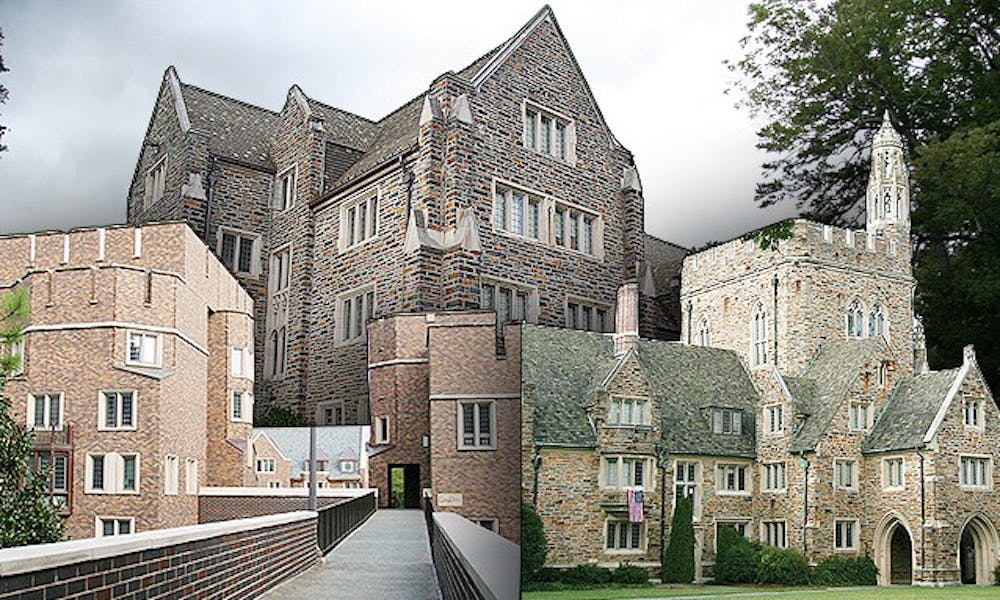Proponents of the housing model believe each house will form a distinct culture—but now those cultures may be racially defined.
Some multicultural groups’ requests to become new selective living groups in next year’s house model could potentially result in living spaces that cater to a specific ethnicity or culture. Executive members of student groups such as Black Student Alliance, Asian Students Association and Mi Gente have confirmed that they are either applying for a house or are considering applying for a house. The Inter-Greek Council is considering applying as well.
Joe Gonzalez, associate dean for residence life and co-chair of the House Model Committee, acknowledged that some may criticize cultural houses for being self-segregationist, but he said he does not think the argument is valid.
“I consider it unlikely that these communities would reduce the diversity throughout campus at such a dramatic level that [the] criticism would ring true,” Gonzalez said.
Sophomore Marcus Benning, Black Student Alliance executive vice president, said he and several other BSA representatives will apply for a living group centered around black culture, aiming to increase academic engagement, develop student leadership and enhance racial consciousness on campus. He added that officials from the Mary Lou Williams Center for Black Culture support the idea, though the idea to apply for housing was entirely student-driven.
“There was an overwhelmingly positive response about applying for a house [at BSA’s last general body meeting],” Benning said. “As a major organization, we have a responsibility to provide opportunities of academic enrichment to enhance the experience of our members. We believe that this black culture living group will do that.”
Benning said he expects criticism from the student body, but he does not plan to entertain conversations about self-segregation. He added that any student, regardless of race, would be able to live in the house.
“We will emphasize that this is a living group for black culture, not just black people,” Benning said. “Just by our knowledge of the demographics of the [African and African American Studies] department, it’s not just black people with an interest for black culture.”
It is unclear whether or not the National Pan-Hellenic Council, the umbrella group for Duke’s eight historically African-American fraternities and sororities, will apply for houses. Executive members of NPHC could not be reached for comment Monday.
Gonzalez said the benefits of cultural living groups far outweigh any possible costs.
“It seems like [cultural living groups] could potentially be an option that doesn’t exist now but might provide a very appealing community for some students,” Gonzalez said. “I’m anxious to see what applications do come forward by the end of the week. There’s a little more interest than I expected [for new SLGs,] but these could be neat additions to the community.”
Gonzalez added that he had several conversations with these groups last year and is not surprised that they are considering applying for housing.
The Inter-Greek Council, which represents multicultural fraternities and sororities at Duke, also plans to apply for housing, IGC President Xiao Zhu, a senior, wrote in an email Monday. He said the organization will most likely apply for an IGC house—as opposed to houses for each of the seven chapters—because the chapters are small, and many members desire greater IGC unity and awareness.
“If IGC chapters were centralized to a residential space on campus, it would greatly aid in visibility and awareness of the IGC, which is currently lacking,” Zhu said.
Asian Student Association President Derek Mong, a junior, wrote in an email Monday that ASA is evaluating the prospects of applying for a house but will make a final decision after talking with ASA’s executive board and Steve Nowicki, dean and vice provost for undergraduate education. Nowicki could not be reached for comment Monday.
Sophomore Betsy Santoyo, co-president of Mi Gente—Duke’s Latino student association—wrote in an email Monday that the organization is also considering applying for a house but will attend Tuesday’s house model information session before making a final decision.
Gonzalez said he believes there will be enough space in the house model to accommodate these groups if they apply, especially because the House Model Committee will be meeting this week to allocate more space to selective living groups in light of Panhellenic Association’s recently announced plans to apply for space.
One of the issues that may come into play when deciding whether or not a cultural group is granted housing is its ability to fill all of the beds in a house, Gonzalez said.
He added that the original plan for designating space for SLGs on West and Central campuses—originally planned to be a random process—may be changed if cultural groups apply for housing.
“I think we still have to figure out what’s the best way to move forward with specific populations,” Gonzalez said.
Get The Chronicle straight to your inbox
Signup for our weekly newsletter. Cancel at any time.

